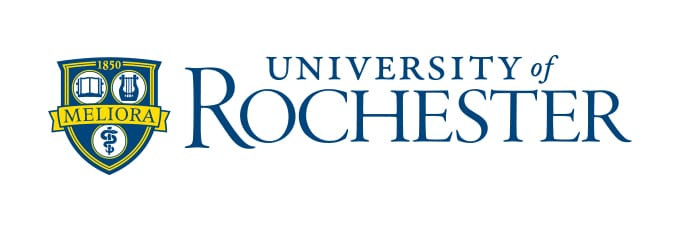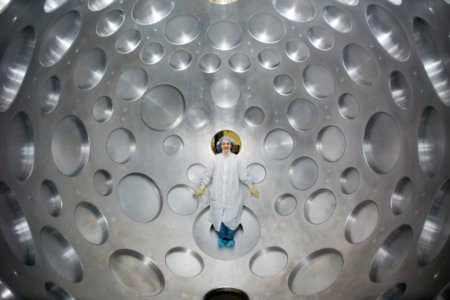At the University of Rochester’s Department of Chemical Engineering, experts are carrying out a noble mission: cultivating tomorrow’s professionals to apply science and engineering to solve 21st century challenges. Through cutting-edge research, the faculty and students focus on using materials science to address important societal issues in clean energy, biotechnology, and nanotechnology.
Established in 1915 as one of the first chemical engineering programmes in the country, the department has maintained its pioneering spirit. It’s part of the Hajim School of Engineering & Applied Sciences, which is ranked among the top 50 engineering schools in the US by US News and World Report. The publication recognizes the University of Rochester as the 25th best value school and 36th best among National Universities as well.

At the University of Rochester, students learn and apply new knowledge and ideas Source: University of Rochester
These rankings befit the well-funded, highly interdisciplinary experimental and computational research in advanced materials, energy, sustainability, bioengineering, and machine learning taking place at the department. Key research areas include advanced materials, catalysis and electrocatalysis, computational fluid dynamics and artificial intelligence, theory, and simulations.
Assistant Professor Astrid M. Müller focuses on the development of new materials for solar energy conversion into storable fuels. Her group developed and capitalizes upon a laser synthesis method that enables rational design of nano catalysts and benchmarking electrochemical performance. “The Department of Chemical Engineering supports my research, teaching, service, student mentorship, and professional outreach,” she says.
The environment is highly supportive, inclusive, and collaborative. “The University of Rochester has several internal funding mechanisms that provide seed funding to support cutting-edge research, including in the areas of sustainability and advanced materials,” says Müller. “I was awarded an internal university research award to obtain preliminary data on aqueous electrocatalytic PFAS destruction. UR also houses URNano, which is a micro- and nanofabrication facility. It consists of nearly 1,000 sqft of metrology labs and a 2,000 square-foot cleanroom fabrication facility. The centre’s array of metrology instruments, including atomic force and electron microscopes, X-ray photoelectron spectrometer, sputtering tools, etchers and other equipment, supports key University of Rochester and regional research interests.”
What further sets ChE research apart is its strong focus on interdisciplinary collaborations with other scientific disciplines, including biology, chemistry, environmental sciences, physics, and engineering fields such as biomedical, electrical, and computer engineering. Notable collaborations have been formed with the University of Rochester Medical School and the Laboratory for Laser Energetics, among others. For example, researchers here have developed a counterfactual method to verify predictions of drug safety and are building next-generation batteries that will be small enough to fit into clothing – and others that will be large enough to power an electric vehicle. Together, these efforts drive the department’s commitment to advancing affordable energy resources and sustainable process engineering.
And the department wants to welcome an even wider pool of talented researchers into its ranks. “The University of Rochester is well-known for its diversity, equity, and inclusion (DEI) initiatives,” says Müller. “I founded and chair the University of Rochester Department of Chemical Engineering DEI committee. In this role, I created webpages to promote DEI awareness, initiated a new DEI award for alumni, and led several events including our annual departmental Panel on Equity and Inclusion. In my own research group, I strive to include women and underrepresented minorities and serve as a role model and advocate for students with different backgrounds.”
At U of R, students are empowered to explore and exchange new ideas thanks to the department’s inclusive nature. Over 49% of the 130 undergraduate students enrolled in Rochester’s ChE department in fall 2021 were female.

Prof. Astrid Müller applies pulsed laser methods to develop new electrocatalysts in her laboratory at the University of Rochester. Source: University of Rochester
A first-class engineering education
Mitchell Anthamatten, a Professor of Chemical Engineering and chair of the Chemical Engineering Department, was initially drawn to the university due to its expertise in advanced materials, applied optics, and medicine. “We are a small, focused department, with high technical impact. Our graduate students are excellent—they share our passion for research, and benefit from a unique, idea-rich culture that were all part of.”
Anthamatten also appreciates the Laboratory of Laser Energetics, which is the most powerful laser that is directly affiliated with a university. “The Laser lab conducts research connected to fusion energy, high energy density physics, and optical materials,” he says. “There is a ton of chemical engineering that will be needed for fusion to ever have a chance of providing the world sustainable energy.” Students at University of Rochester are at the epicentre of technical breakthroughs.
Yet for all its state-of-the-art facilities, the department’s greatest asset is its people. “University of Rochester boasts a strong student-faculty interaction, with small research groups of six to 10 people facilitating direct interaction between graduate students, faculty, postdocs, and exchange students. Students enjoy a variety of materials characterisation tools, including advanced electron imaging facilities, lithography and patterning tools, and highly customised materials,” he says. “further, the chemical engineering graduate student community is well-organised, offering many social activities year-round.”
The university is home to many international students representing every corner of the globe — each is cared and supported every step of the way. “The International Services Office offers students assistance and advice on visa and immigration matters, and information on adjusting to life in the US and in Rochester,” says Anthamatten. “The university’s writing and speaking centre also provides tutoring and individualised services to graduate students that support professional growth through development of communication skills.”

In carefully designed courses and cutting-edge research projects, students benefit from close interactions with faculty. Source: University of Rochester
Graduate programmes get students involved in ground-breaking, multidisciplinary research and education in an immersive environment. The MS in Chemical Engineering offers two options: a thesis-based track with independent research and coursework, or a coursework-based track with optional research. Regardless of their chosen path, students receive comprehensive training in thermodynamics, transport, and kinetics, while being exposed to research opportunities within faculty-led research groups. Successful completion of this programme leads to high-level professional positions or provides a pathway to a PhD degree.
The PhD programme includes a diverse range of research opportunities with a focus on materials science and sustainable engineering. Typically, students who enter the program with a BS degree in chemical engineering or a closely related field complete the degree in about five years. Throughout the programme, all PhD students in good standing receive a full tuition waiver up to US$60,000, a competitive stipend (US$32,000), and comprehensive medical insurance coverage of US$6,000.
Upon completion of either MS or PhD programmes, graduates of University of Rochester have excellent employment prospects. In fact, over 70% of the 2022 BS graduates had either accepted job offers at the time of graduation or are entering graduate programmes. PhD graduates find employment in a variety of industries, government positions, and universities including: Global Foundries, Aerospace Corporation, Eastman Kodak, Intel, Imperial College London and Argonne National Laboratory.
“Our department’s graduates quickly find high-paying jobs in research labs or industry, such as Intel, St. Gobain, IBM, Exxon-Mobil, 3M, and Bain Capital,” says Müller. “The rigorous education that our department provides on the graduate and undergraduate level builds top skills that employers want, including leadership, teamwork, critical thinking, analysis and interpretation of data, adaptability, ethical judgment and reasoning, intercultural fluency, written and verbal communication, and creativity.”
Ready to master chemical engineering at the University of Rochester? Click here to find out how you can make it happen.












